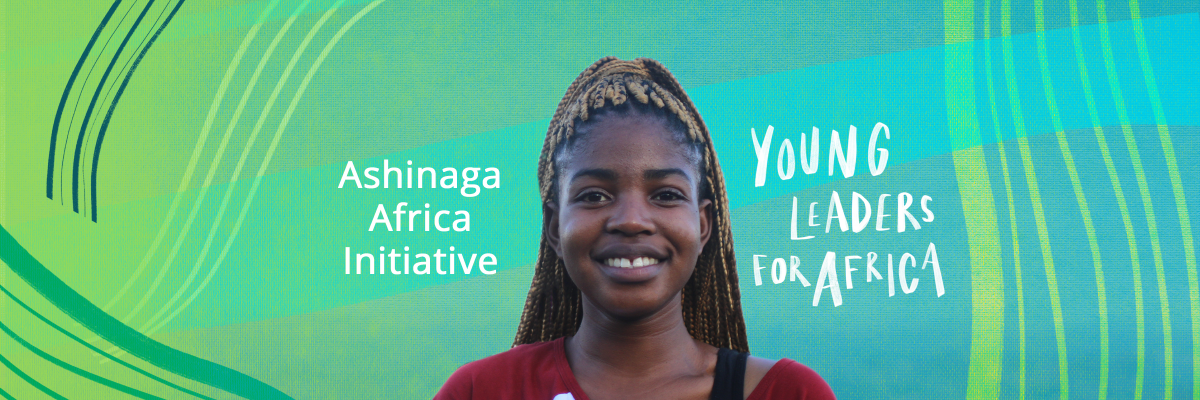The Ashinaga Africa Initiative (AAI) is an international leadership program that cultivates the next generation of leaders to contribute to the development of sub-Saharan Africa.
AAI Scholars have lost one or both parents and are committed to returning to sub-Saharan Africa to initiate change, innovation, and development. The AAI provides access to full financial support to study at university abroad (equivalent to an undergraduate degree), including tuition, room, travel costs and other necessary fees.
Learn more about the Ashinaga Africa Initiative
Apply for the Ashinaga Africa Initiative
Applications for the 2020 Ashinaga Africa Initiative for Anglophone and Francophone countries are now open!
There are two stages to the Ashinaga Africa Initiative application process;
- Registration: all applicant must first confirm the eligibility by registering for the programme. Only students who register for the program and are deemed eligible (based on criteria/eligibility above) will receive the application form.
- Application: all students who register for the programme will receive an email with a link to the application form within 1 month of their registration if they are eligible for the programme.
We strongly recommend registering and applying online. However, if this is not possible you can also apply using our paper application form. This form can be downloaded here. Please also read the programme and application information document: click here.
Requirements (2021)
Applicants must:
- Have lost one or both parents.
- Have completed secondary school and passed national secondary school examination (technical and vocational degrees not accepted) within the last two years (any date after 1st September 2018, including all of 2019 and 2020) or will have completed secondary school and received final exam results before February 28th, 2021.
- Have citizenship and have completed/are completing high school in one of the following countries: Benin, Botswana, Burkina Faso, Burundi, CAR, Cameroon, Chad, Comoros, Côte d’Ivoire, Djibouti, DRC, Ethiopia, Eritrea, Gabon, Ghana, Guinea Conakry, Kenya, Kingdom of eSwatini, Lesotho, Liberia, Madagascar, Malawi, Mali, Mauritania, Mauritius, Namibia, Niger, Nigeria, Republic of Congo, Rwanda, Sénégal, Sierra Leone, Somalia, South Africa, South Sudan, Seychelles, Sudan, Tanzania, The Gambia, Togo, Uganda, Zambia and Zimbabwe.
- Were born after 1st September 1998.
- Do not have the means to attend university abroad without external financial support.
- Are proficient in English or French.
- Are regularly ranked in the top 10% of their class during their last 2 or 3 years of secondary school. Students without strong grades are unlikely to be successful.
- Are able to participate in the two Ashinaga preparatory programs, over the course of one year, before attending university.
- Are committed to return home, or to Sub-Saharan Africa, and contribute to society in Sub-Saharan Africa after graduating from university.
- Have no dependents who could interfere with academic progress.
- Have a good enough health condition to be able to study abroad.
Required Documents (2021)
- Registration
- Copy of national ID card or passport.
- Copy of term reports / high school for your final year of school.
- Copy of final Secondary School Examination Certificate**
**For students receiving their examination results after February 19th 2021 and before February 28th 2021 we will ask you to send your examination certificate if you are invited to submit the application for the program.
- Application
- Copy of all term reports / high school transcripts from the last 2 years.
- Copy of final Secondary School Examination Certificate (if you did not submit it with your registration form)
- Copy of academic transcripts / diplomas from university / post-secondary institution, (if applicable).
- Copy of death certificate of deceased parent(s), including the deceased parent’s name, or alternative official documentation proving the death of parent(s) or orphan status.
- Copy of birth certificate of the applicant.
- Copies of certificates for extracurricular activities, training courses, jobs or commitments (if applicable).
- A letter of recommendation from a principal or school teacher. This should be inclusive of their email address, phone number and must contain information about your performance and character whilst at secondary school. All recommendation letters should contain an official signature or stamp.
Note: All documents must be submitted in French or English if possible. Use the Gregorian (Western) calendar to fill in the application.
Selection (2021)
Applications for Anglophone and Francophone countries are open between October 2020 and February 2021. Successful applicants will be invited to an assessment day in April 2021 where Ashinaga conducts individual interviews and sets an examination to better understand students’ academic abilities and career goals in Sub-Saharan Africa. Students must bring all original academic documents and identification documents to the interview. Failure to do so may result in dismissal from the application process.
Eligible Countries (2021)
Anglophone Recruitment (October 2020 – February 2021)
Botswana, Ethiopia, Eritrea, The Gambia, Ghana, Kenya, Kingdom of eSwatini, Lesotho, Liberia, Malawi, Mauritius*, Namibia, Nigeria, Rwanda, Seychelles*, Sierra Leone, Somalia, South Africa, South Sudan, Sudan, Tanzania, Uganda, Zambia, and Zimbabwe.
Francophone Recruitment (October 2020 – February 2021)
Benin, Burkina Faso, Burundi, Cameroon*, Central African Republic, Chad, Comoros, Côte d’Ivoire, Democratic Republic of Congo, Djibouti, Gabon, Guinea Conakry, Madagascar, Mali, Mauritania, Niger, Republic of Congo, Senegal and Togo.
*As these countries have French and English as its official languages, applicants can apply to either the Anglophone or Francophone program. However, this does not guarantee multiple seats on the AAI will be provided.
Lusophone Recruitment (August to October 2020)
Angola, Cape Verde, Guinea-Bissau, Mozambique and São Tomé and Príncipe
Click here for information about the Lusophone Recruitment.
How to apply for Anglophone and Francophone Recruitment
There are three ways to apply for the Ashinaga Africa Initiative, although we prefer online applications or those sent by email. There is no application fee, and you must never pay anyone to apply or to apply on your behalf.
Please note that if you apply by post, all submitted documents will not be returned to you. Therefore, you must send copies of documents ONLY.
| Online | Post | ||
| Step 1 | Gather all the required documents, except for the form. | Download the registration form. | Download the registration form or ask for the form from your local Japanese embassy. |
| Step 2 | Scan the required documents in either PDF or JPG format. | Print the registration form and fill it out. | Print the registration form and fill it out. |
| Step 3 | Register online using the online form. | Scan the completed form and the other required documents in either PDF or JPG format. | Make photocopies of your completed form and all other required documents |
| Step 4 | Registration complete | For Anglophone countries, email your scanned documents to: admissions.en@ashinaga.orgFor Francophone countries, email your scanned documents to: admissions.fr@ashinaga.orgUse your name and country as the email title. | Send all photocopies to the following address:Ashinaga Africa Initiative Recruitment Team P. O. Box 16864 – Kampala, UGANDADo not send original documents, copies only. |
| Step 5 | – | Registration complete | Registration complete |
Frequently asked questions
How many students do you select per country?
Ashinaga takes great care to select and develop our students. We believe in quality over quantity and invest a significant amount of resources in those who are accepted into our program. As a result of this, to ensure sustainability, we are only able to take about one student per country per year. We cannot guarantee that we will be able to select a student from each country every year.
Why is the age limit 23?
There are two reasons for this. The first is that Ashinaga wants to prioritize young people for this leadership program, and the second is that students aged 23 or older typically have greater difficulty in obtaining a student visa to study abroad.
Why is the scholarship only for orphans?
Ashinaga is first and foremost an organization that supports the education of orphaned young people.
Can exceptions be made to the eligibility criteria?
You must match all the eligibility criteria to apply for this program.
Why only undergraduate level?
As there are many other organizations, universities, and foundations offering funding for masters degrees, we have decided to prioritize students applying for undergraduate university studies.
How will my university/country of study be decided?
This will be decided during the Ashinaga Study Camp for students selected for this program. It will be decided together with the student, but the final decision ultimately lies with Ashinaga. It will depend on numerous criteria, including visa requirements, language requirements, academic grades, and the availability of the student’s desired course of study.
If I applied last year, can I apply again?
As long as you still satisfy the requirements, you are welcome to apply again.
I do not have one of the required documents. What should I do?
All of the required documents listed are necessary to apply, particularly proof of age and proof of the death of a parent. If you do not have a death certificate, then any other official document can be considered, including a court record, affidavit, or an official letter from a local government official.
I am from a French-speaking country but want to study in English. Can I still apply?
Yes, you may still apply. Some students from Francophone countries with sufficient quality English can study in English.
What is the registration form for?
The registration form allows us to register applicants in our system, and we will use the information provided to determine if 1) the applicant fulfils all the eligibility requirements and 2) has a strong enough academic record to be considered for the program. Only applicants who are eligible when assessed according to these criteria will be invited to complete the application.
What is required for the application and what does it assess?
Applicants are scored on their academic performance, with readers looking to identify any patterns in a student’s performance. Applicants are also assessed on the challenges they have faced and overcome, their future plans and their leadership potential. You will submit 2 essays and respond to long and short answer questions.
What is assessed during the Ashinaga Assessment Day?
Applicants are assessed on their knowledge and aptitude, challenges faced and future planning and initiative. You will be assessed through an examination and interviews.
Promotional Materials
If you would like to promote Ashinaga and the Ashinaga Africa Initiative at your school, company, or organization, then you can download our promotional posters and flyers here.
| File | English* | French | Portuguese* |
| Posters | Coming soon… | Coming soon… | Coming soon… |
| Flyer | Coming soon… | Coming soon… | Coming soon… |
Keep updated
You can stay up- to- date about Ashinaga’s activities and the progress of recruitment by following us on Facebook and Twitter.














